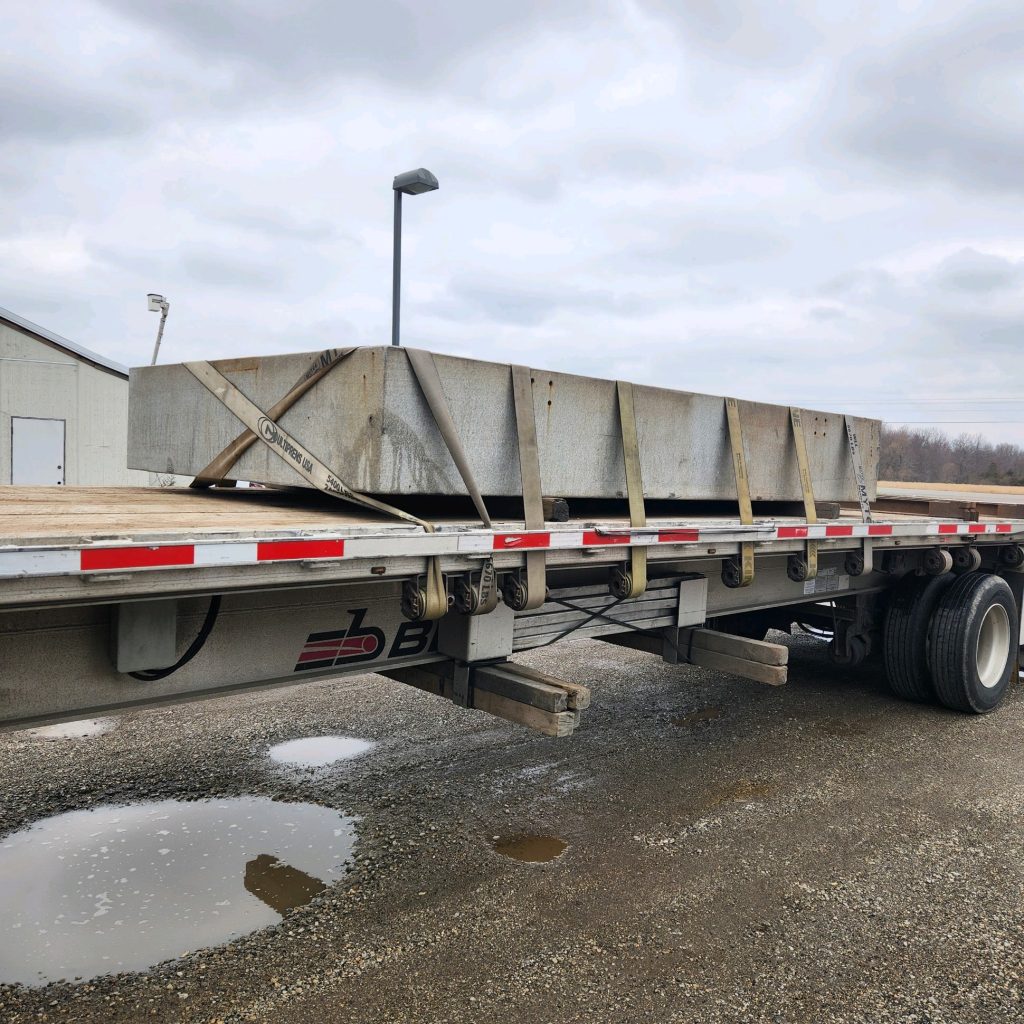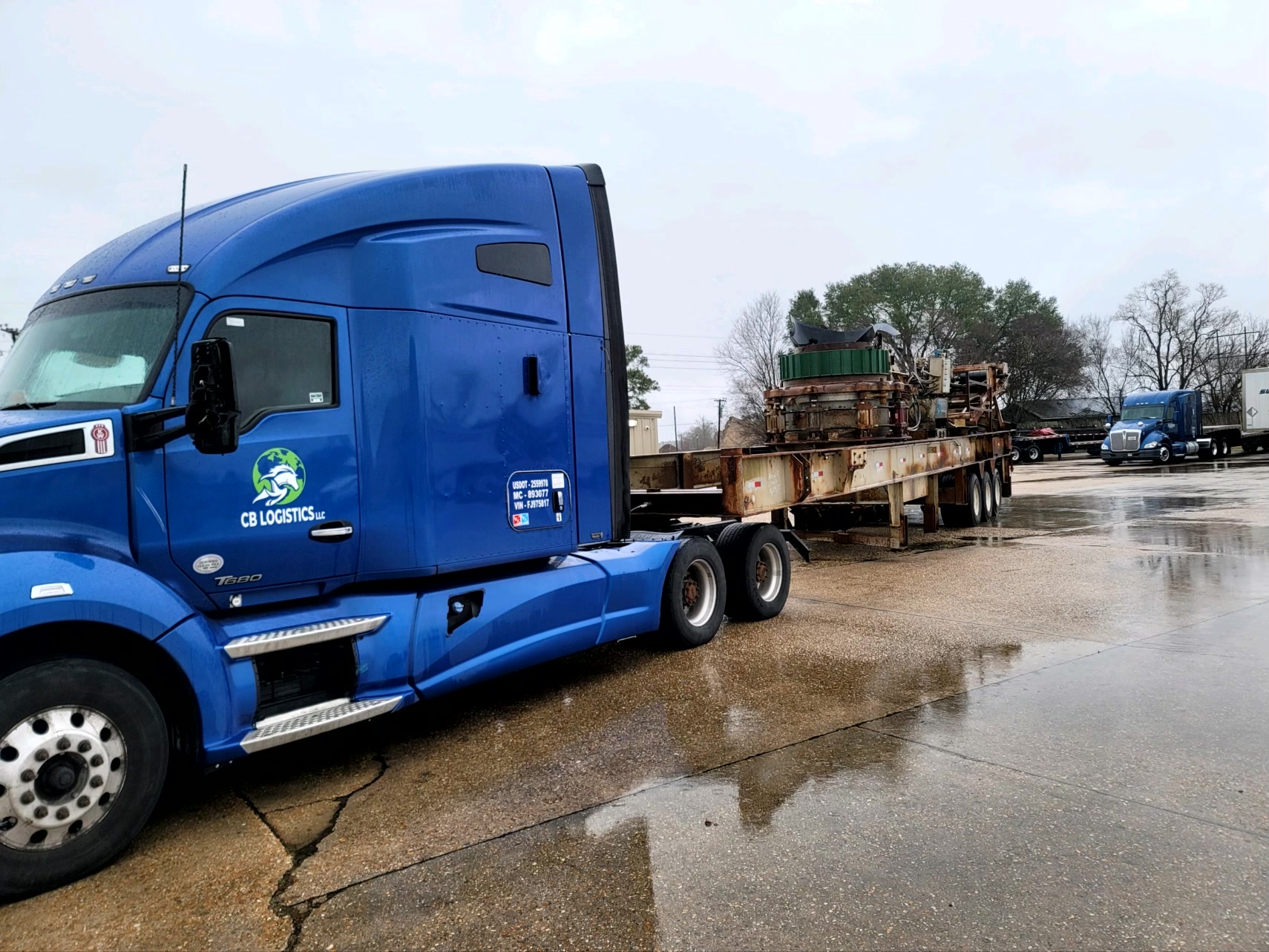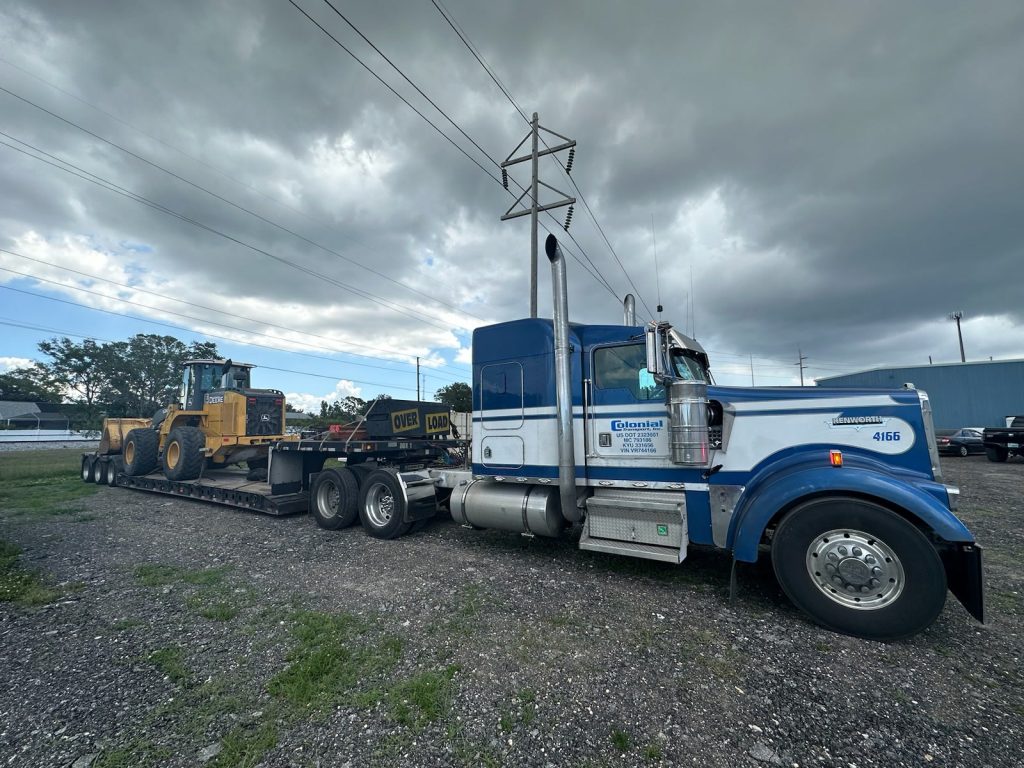Iowa, a key player in America’s heartland, is a pivotal hub for trucking and transportation. The state’s strategic location makes it a crossroads for numerous shipping and logistics operations. Understanding truck weight limits in Iowa is crucial, not only for compliance with state laws but also for ensuring the safety and longevity of its infrastructure. These regulations are designed to balance the needs of the trucking industry with the preservation of roads and bridges.
In this article, you will learn about Iowa Truck Weight Limits and regulations.
Significance of Iowa Truck Weight Limits
Truck weight limits are essential for maintaining road safety and preventing infrastructure damage. Overloaded trucks can cause significant wear and tear on road surfaces and bridges, leading to costly repairs and safety hazards. Thus, adherence to these limits is a critical responsibility for all truck operators in Iowa.
Role of Trucking in Iowa’s Economy and Infrastructure
The trucking industry plays a vital role in Iowa’s economy, supporting agriculture, manufacturing, and retail sectors. The state’s vast network of roads and highways facilitates the efficient movement of goods, making adherence to truck weight limits a key factor in sustaining economic growth and infrastructure integrity.
General Truck Weight Regulations in Iowa
In Iowa, truck weight regulations are set forth to ensure the safety and efficiency of transportation while minimizing road damage. These rules are a complex mix of state and federal guidelines that truckers must navigate.

Overview of Iowa’s Truck Weight Limit Policies
Iowa’s weight limit policies are designed to align with federal standards while addressing specific state needs. The regulations consider the total weight of the truck, as well as the distribution of weight across its axles.
The Impact of Weight Limits on Road Safety and Infrastructure
The weight limits help in managing the impact of heavy vehicles on road surfaces and bridges. By adhering to these limits, truckers contribute to the longevity of the state’s infrastructure and the safety of all road users.
Standard Gross Vehicle Weight (GVW) Limits
Gross Vehicle Weight (GVW) limits in Iowa vary based on the type of highway and the number of axles on the vehicle. These limits are essential for maintaining the structural integrity of roadways and ensuring safe travel.
Gross Vehicle Weight Restrictions on Different Road Types
Limitations on Interstate Highways
On Interstate highways in Iowa, the maximum gross vehicle weight limit is set at 80,000 pounds. This limit is consistent with federal regulations and is enforced to ensure the safety and efficiency of interstate commerce.

Regulations on State and Federal Non-Interstate Highways
For state and federal non-Interstate highways, the maximum gross vehicle weight can reach up to 86,000 pounds for specific vehicle configurations, like a five-axle tractor/spread axle semitrailer transporting livestock. Heavier limits are also set for six-axle vehicles (up to 90,000 pounds) and seven or more axle vehicles (up to 96,000 pounds).
Guidelines for Country and City Non-Primary Highways
Country and city non-primary highways in Iowa have similar weight limits to state and federal non-interstate highways, accommodating various vehicle types and cargo.
Axle Weight Restrictions in Detail
Single Axle Weight Limits
For a single axle, the weight limit in Iowa is generally set at 20,000 pounds. This limit is crucial for distributing the vehicle’s weight evenly and preventing excessive pressure on any single point of the roadway.
Tandem Axle Weight Limits
The tandem axle weight limit, involving two consecutive axles, is set at 34,000 pounds. This distribution helps to balance the load more evenly across the vehicle, reducing the risk of road damage.
Considerations for Tridem Axles (if applicable)
Tridem axles, which involve three consecutive axles, are subject to specific regulations that vary based on the vehicle and cargo type, with the overarching goal of ensuring road safety and infrastructure preservation.
Special Provisions and Exceptions
Iowa’s truck weight regulations include special provisions and exceptions to accommodate the diverse needs of the trucking industry and the state’s agricultural sector.

Increased Weight Limits for Specific Vehicle Types
Regulations for Livestock Transport Vehicles
Livestock transport vehicles in Iowa are allowed increased weight limits due to the unique nature of their cargo. This accommodation is critical for the state’s substantial agricultural sector, allowing for efficient and effective transportation of livestock while still maintaining road safety standards.
Special Allowances During Harvest Season
During the harvest season, Iowa implements special provisions to support agricultural activities. Vehicles transporting agricultural products such as corn, soybeans, and hay may be permitted to exceed standard weight limits, reflecting the seasonal nature of farming and the need to move large quantities of produce efficiently.
Special Mobile Equipment Regulations
The state also provides specific guidelines for special mobile equipment, which may have different weight limits based on their purpose and design. This includes machinery like cranes and other heavy-duty equipment used in construction and other industries.
Emergency Proclamations and Temporary Adjustments
In response to emergencies or unique situations, Iowa may issue temporary proclamations that adjust truck weight limits. These are typically designed to address immediate needs, such as disaster response or critical infrastructure projects.
Oversize and Overweight Permit Requirements
For vehicles that exceed standard weight limits, Iowa offers various permits. These permits are essential for legal compliance and road safety when transporting oversized or overweight loads.
Understanding Permit Types and Their Requirements
Annual Oversize/Overweight Permits
Annual permits are available for vehicles that regularly exceed standard dimensions or weights. These are ideal for companies that frequently transport large or heavy loads and require the flexibility to operate throughout the year.
Multitrip and Single-Trip Permit Specifications
Multitrip and single-trip permits cater to specific hauling needs, whether for a one-time oversized load or for multiple trips over a set period. These permits are crucial for ensuring that each unique transport situation is handled legally and safely.
Application Process and Compliance for Permits
The process for obtaining these permits involves submitting detailed information about the vehicle and its load. Compliance with permit terms is crucial to maintain road safety and avoid penalties.
Enforcement and Penalties for Non-Compliance
Enforcement of truck weight limits in Iowa is a critical aspect of maintaining road safety and infrastructure integrity. The state employs various methods to ensure compliance, including weigh stations and roadside inspections.
Monitoring and Enforcement of Weight Limits in Iowa
State authorities actively monitor vehicle weights using weigh stations and mobile units. This enforcement ensures that all vehicles adhere to the prescribed limits, thereby protecting road surfaces and structures from excessive wear.
Consequences of Exceeding Weight Limits
Non-compliance with weight limits can result in significant penalties, including fines and legal repercussions. These measures are in place to deter overloading and maintain safe conditions on Iowa’s roadways.
Additional Resources and Guidance for Truckers
To assist truckers in navigating the complex regulations, Iowa provides various resources and guidance.
Accessing Information and Assistance from Iowa DOT
The Iowa Department of Transportation (DOT) offers comprehensive resources, including detailed guides, websites, and contact points, to help truckers understand and comply with weight limits and permit requirements.
Practical Tips for Truckers to Ensure Compliance
Staying informed about current regulations, regularly checking vehicle weights, and planning routes in accordance with permit stipulations are practical steps truckers can take to ensure compliance. Additionally, seeking guidance from industry associations and staying updated with any changes in regulations can help truckers navigate these requirements effectively.
